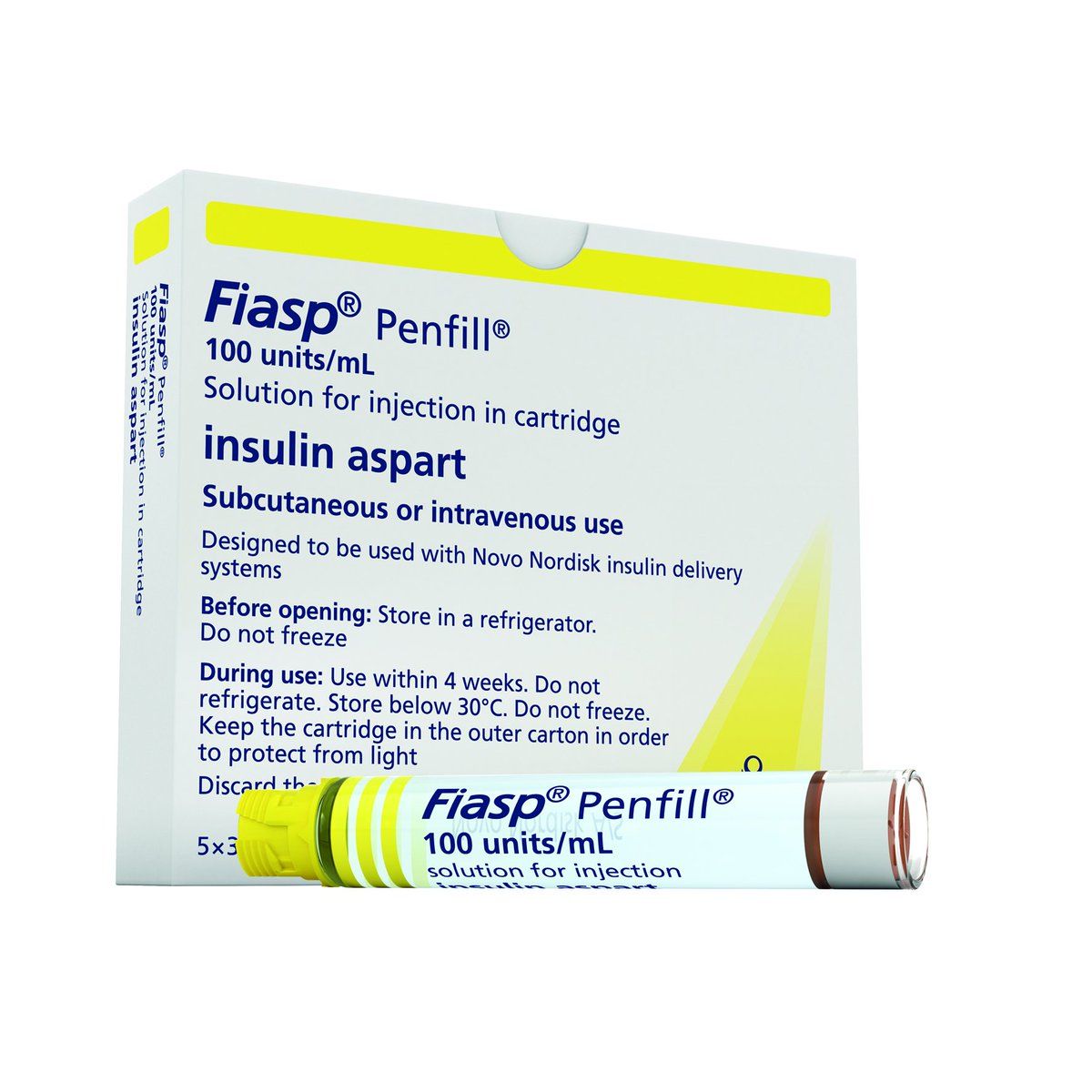Article
FDA Approves Fast-Acting Insulin Aspart for Diabetes Treatment
Author(s):
The Novo Nordisk product showed a greater reduction in overall blood sugar compared to the conventional insulin in clinical trials.

The US Food and Drug Administration (FDA) has approved fast-acting insulin aspart (Fiasp, Novo Nordisk) for the treatment of improved glycemic control in adults with type 1 and type 2 diabetes.
With the approval, dosing can begin at the beginning of a meal or within 20 minutes of consumption. In making the decision, the FDA reviewed data from the Onset 1 trial, a phase 3a multicenter study that compared fast-acting insulin aspart with traditional treatment insulin apart in type 1 diabetes over a year, in 2 treatment periods of 26 weeks.
The findings from Onset 1, presented at the European Association for the Study of Diabetes (EASD) Annual Meeting in Lisbon, Portugal, showed a -0.10% greater reduction in overall blood sugar with fast-acting insulin aspart compared to the conventional insulin. Additionally, a statistically significant -0.91 mmol/L reduction in post-meal sugar after 1 hour was observed with the fast-acting insulin. No difference was observed 2 hours post-meal.
"We have not had very many advancements in mealtime insulin since the approval of the currently used rapid-acting insulin products, whereas we have had numerous advancements in many new basal/long-acting insulin products," Kevin Pantalone, DO, of the Twinsburg Family Health and Care Center, told MD Magazine. "This product's onset of action and peak effect (because of it's faster acting nature), matches up better with the timing of glucose absorption and peaking of glucose levels in the blood from digested food. This helps to reduce postprandial hyperglycemia. This will be an additional advantageous tool we can use in patients to help them get their glucose and hemoglobin A1Cs under better control. And perhaps, most importantly, these advantages did not come at the expense of safety, as this faster acting insulin did not increase the risk of hypoglycemia."
The study randomly assigned 1143 patients with diabetes at a 1:1:1 ratio to either double-blind mealtime fast-acting insulin aspart (n=381), conventional insulin aspart (n=380), or open-label, post-meal, fast-acting insulin aspart (n=382), as well as insulin detemir. Overall, the rate of severe hypoglycemic episodes or blood-glucose confirmed hypoglycemic episodes were similar between the fast-acting and conventional insulin aspart (plasma glucose <3.1 mmol/dL [-23.33; -0.70]; P = 0.0375).
"These results provide reassurance of the meaningful long-term benefits of Fiasp versus conventional insulin aspart," Chantal Mathieu, MD, PhD, the study investigator and chair of Endocrinology and professor of Medicine at Katholieke Universiteit Leuven, in Belgium, said at EASD. "Accordingly, for people with diabetes who struggle to control their post-meal sugar levels, Fiasp might offer a better option to meet their needs."
The drug’s unique formula consists of 2 added excipients to improve the speed of absorption and stability: niacinamide (Vitamin B3), and L-Arginine, a naturally occurring amino acid.
“If you’re using mealtime insulin, I don’t care what the labels say, you really need to take it 10 to 15 minutes before your meals to get the benefit, the onset, the peak, and the duration to match the foods you’re eating,” Davids F Kruger, MSN, APRN-BC, BC-ADM, a CNP in the Division of Endocrinology and Diabetes at Henry Ford Medical Center, told MD Magazine.
“Think about how hard it is to say, ‘I’m going to know when I’m going to eat, and how much.’ So if we have this quick-acting insulin, the patient is going to get a much better matching of the blood glucose and the food they're consuming to lower their blood sugar after meals,” Kruger added.
The European Commission authorized the drug for marketing in January 2017, and it previously received a complete response letter from the FDA in October 2016, after which its class II New Drug Application (NDA) was submitted in March 2017.





